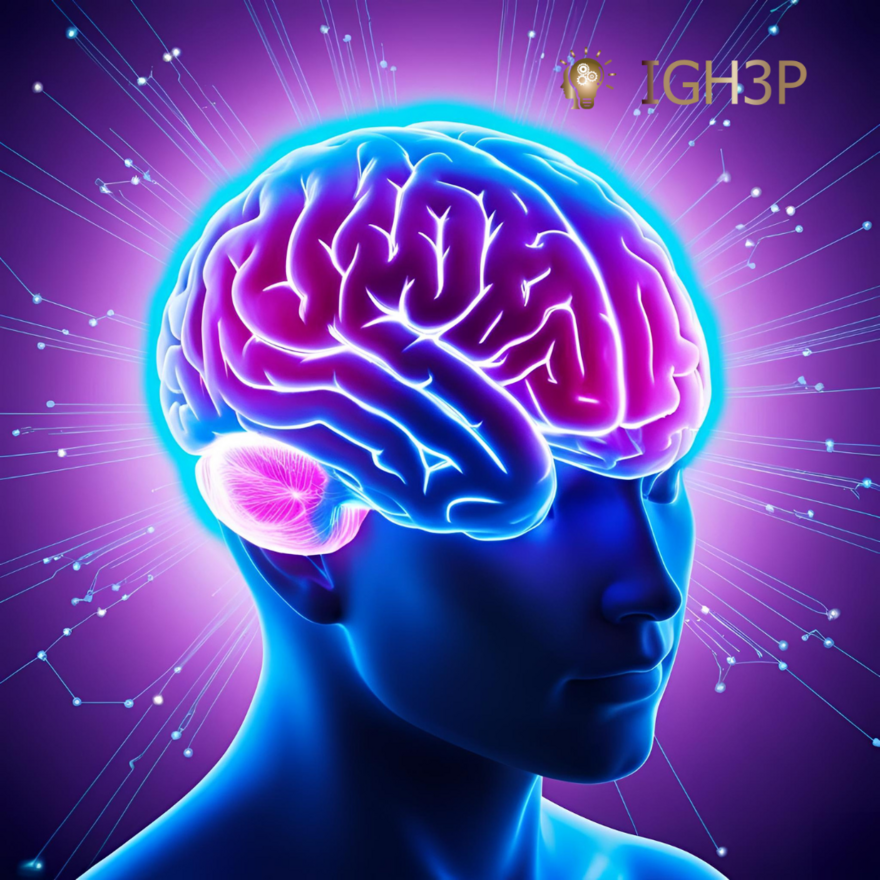The Importance of IGH3P Accreditation in Elevating Your Coaching Career

Introduction
In a profession where the ability to support change is central, accreditation is no longer optional—it’s essential. As the coaching industry becomes increasingly saturated, clients, organisations, and educational institutions demand clear indicators of professionalism, ethics, and competence. One organisation that sets this benchmark with clarity and depth is the International Guild for Hypnotherapy, NLP, and 3 Principles Practitioners and Trainers (IGH3P).
Led by its founder and coaching supervisor, Dr. Terry McIvor, IGH3P provides a robust framework for coaches, hypnotherapists, NLP practitioners, and integrative therapists to develop and validate their professional practice. This blog explores the benefits of IGH3P accreditation and showcases anonymised case studies of student coaches who have significantly advanced their careers under Dr. Terry’s supervision.
Why IGH3P Accreditation Matters
IGH3P offers multi-level accreditation, tailored to meet practitioners where they are in their journey—whether they’re new to coaching or already practicing at an advanced level. Beyond a checklist of hours and certifications, IGH3P stands out because it:
- Integrates multiple disciplines, including NLP, hypnotherapy, neuroscience, and the 3 Principles.
- Provides structured supervision, led by experts like Dr. Terry McIvor.
- Emphasises ethical practice, psychological safety, and client-centred coaching.
- Recognises prior learning and supports ongoing CPD (continuing professional development).
- Is internationally recognised through its affiliations with global coaching bodies.
Case Study 1: From Local Coach to Global Practitioner
One coach began their training with IGH3P as a locally-based mindset coach offering one-to-one sessions within their community. While experienced in active listening and basic goal-setting strategies, they struggled to attract international clients or corporate referrals due to a lack of recognised credentials.
Through IGH3P, they pursued practitioner-level accreditation in NLP and coaching, completed supervision hours with Dr. Terry McIvor, and engaged in reflective practice journals. They also completed a specialisation in the SynapGen® coaching model—a neuroscience-informed system designed to enhance transformational change.
Results:
- Increased pricing structure by 50% due to enhanced credibility.
- Began delivering coaching internationally via online platforms.
- Became a mentor within the IGH3P student community.
- Received consistent referrals from organisations seeking certified, ethical coaches.
Case Study 2: Rebuilding Confidence After Burnout
A student coach came to IGH3P after experiencing burnout from unstructured, high-empathy client work. They felt drained, directionless, and questioned their effectiveness. During their early supervision sessions with Dr. McIvor, it became clear that their boundaries were underdeveloped and their coaching lacked a coherent framework.
IGH3P's accreditation pathway allowed them to revisit core competencies, undergo ethical training, and integrate hypnotherapy techniques to support both themselves and their clients in stress regulation. They also received peer support and supervision that focused on energy management and self-care.
Results:
- Restructured client sessions with clear frameworks and improved time boundaries.
- Shifted from reactive support to outcome-driven coaching.
- Reported increased confidence and reduced emotional fatigue.
- Gained accreditation and used their learning to specialise in burnout recovery coaching.
Case Study 3: Breaking into the Corporate Coaching Market
A coach with several years of informal mentoring experience was struggling to enter the corporate coaching space. While highly skilled, they lacked formal training in executive coaching language, leadership frameworks, and psychological principles.
They enrolled in IGH3P’s accreditation pathway at the advanced level, receiving supervision from Dr. Terry and completing modules on neuroscience, ethical coaching, and leadership psychology. They also used the IGH3P platform to network with peers and present at CPD webinars.
Results:
- Landed a coaching contract with a mid-sized tech company.
- Developed an executive coaching package informed by neuroscience and NLP.
- Delivered online workshops on emotional intelligence in leadership.
- Credited IGH3P for the language, accreditation, and support network that enabled the leap.
Case Study 4: Integrating Coaching with Therapy Safely
Another student came from a therapeutic background (e.g., counselling or psychotherapy) and wanted to introduce coaching into their existing practice. However, they were concerned about scope of practice, ethical overlap, and client expectations.
Under IGH3P supervision, they developed a dual-practice framework that delineated therapeutic and coaching goals. They studied the 3 Principles and completed modules on integrative practice, always under supervision and peer discussion.
Results:
- Created a two-track client intake process: coaching and therapy.
- Reduced risk by gaining clarity on ethical boundaries.
- Attracted new clients looking for practical change rather than therapy.
- Described the IGH3P model as “protective, empowering, and professionally liberating.”
The Role of Supervision: Why Dr. Terry McIvor’s Approach Works
What sets IGH3P apart is not just its curriculum, but its emphasis on reflective supervision. Dr. Terry McIvor brings decades of experience to his mentoring, blending neuroscience, NLP, and coaching theory with personal insight and practical wisdom. His supervisory style is described as:
- Non-judgmental but firm—holding coaches to high standards while empowering them to grow.
- Philosophically informed—encouraging deep reflection on the purpose and identity of coaching.
- Research-grounded—regularly drawing from emerging neuroscience and behavioural science.
Many coaches credit supervision with Dr. Terry as the turning point in their careers—not just for feedback, but for the way it reshaped their understanding of what coaching is and can be.
Conclusion: Accreditation Is a Catalyst for Confidence and Competence
IGH3P accreditation is more than a formality. It’s a path to clarity, connection, and confidence. Whether you’re struggling to attract clients, unclear on your identity as a coach, or seeking international credibility, the structure and support provided by IGH3P can transform your practice.
As the case studies above show, coaching professionals under the supervision of Dr. Terry McIvor have gone on to reshape their services, increase their income, avoid burnout, and enter new markets with professionalism and purpose.
Ready to elevate your coaching?
Explore IGH3P's accreditation pathways today and become the practitioner you were meant to be.
CLICK HERE

0 comments
Leave a comment
Please log in or register to post a comment